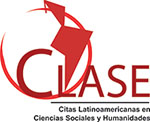Impacto de la educación híbrida en el rendimiento académico
DOI:
https://doi.org/10.23857/dc.v10i4.4156Palabras clave:
aprendizaje híbrido, educación, aprendizaje, rendimiento académicoResumen
La enseñanza híbrida, que combina elementos presenciales y en línea, ha ganado relevancia en la educación superior debido a su potencial para mejorar el acceso y la flexibilidad en el aprendizaje. Por medio de una revisión bibliográfica, el presente trabajo ofrece una revisión crítica de la literatura existente sobre la educación híbrida en el contexto educativo, abordando el rendimiento metodológico en la pandemia, su impacto, limitaciones y compromiso emocional de los estudiantes. Las investigaciones indican que no hubieron diferencias significativas en el rendimiento académico entre los modelos híbrido con el convencional presencial, manteniendo la calidad educativa, combinando eficazmente los beneficios del aprendizaje presencial y en línea, pero enfrentando desafíos relacionados con la interacción y la calidad de los materiales digitales Estos hallazgos destacan la efectividad de la enseñanza híbrida, aunque plantean desafíos relacionados con la equidad tecnológica y la participación activa de los estudiantes.
Citas
Ayham, M., & Araci, Z. C. (2023). The effects of online and hybrid teaching practices on the academic performance of engineering students in higher education institutions. In Proceedings of the 5th European International Conference on Industrial Engineering and Operations Management. Rome, Italy, July (pp. 26-28).
Congdon, H. B., Nutter, D. A., Charneski, L., & Butko, P. (2009). Impact of hybrid delivery of education on student academic performance and the student experience. American Journal of Pharmaceutical Education, 73(7). https://doi.org/10.5688/aj7307121
Demuyakor, J. (2020). Coronavirus (COVID-19) and online learning in higher institutions of education: A survey of the perceptions of Ghanaian international students in China. Online Journal of Communication and Media Technologies, 10(3), e202018. https://doi.org/10.29333/ojcmt/8286
Dhawan, S. (2020). Online learning: A panacea in the time of COVID-19 crisis. Journal of educational technology systems, 49(1), 5-22. https://doi.org/10.1177/0047239520934018
Fredricks, J. A., Blumenfeld, P. C., & Paris, A. H. (2004). School engagement: Potential of the concept, state of the evidence. Review of educational research, 74(1), 59-109. https://doi.org/10.3102/00346543074001059
Herrero-Villarreal, D., Fussero, G. B., Gandolfo, N., Dalmasso, M. B., Echeveste, M. E., Guanuco, R. S., & Pérez, H. A. (2023). Un estudio de multicaso sobre experiencias de Educación Híbrida en universidades de América Latina. Revista Educación Superior y Sociedad (ESS), 35(1), 426-449. https://doi.org/10.54674/ess.v35i1.704
Iparraguirre Contreras, J. R., Salazar Velásquez, I. A., Gómez, N. F. L., & Ríos Vera, P. J. (2023). Educación superior, modalidad hibrida en tiempos de pospandemia: Una revisión sistemática. Revista Andina de Educación, 6(2). https://doi.org/10.32719/26312816.2022.6.2.7
Kazu, I. Y., & Yalçin, C. K. (2022). Investigation of the Effectiveness of Hybrid Learning on Academic Achievement: A Meta-Analysis Study. International Journal of Progressive Education, 18(1), 249-265.
Martínez-González, J. S. (2022). Modalidad hibrida: nuevas formas de enseñanza. Con-Ciencia Serrana Boletín Científico de la Escuela Preparatoria Ixtlahuaco, 4(7), 5-6.
Menta, J. L. U., Mendoza, C. M. S., Campozano, E. G. D., Becerra, N. M. Q., & Mite, L. A. B. (2024). Usos de la inteligencia artificial en los estudiantes universitarios. Polo del Conocimiento, 9(8), 3557-3569. https://doi.org/10.23857/pc.v9i8.7899
Núñez, J. A. R. (2024). El aula invertida como estrategia en la enseñanza híbrida: una propuesta orientada al desarrollo del aprendizaje activo. Cuaderno de Pedagogía Universitaria, 21(4), 49-58.
Pereira, V. A., García, M. A., Da Silva, R. F., & Sosa, J. S. R. (2023). Las relaciones enseñanza-aprendizaje en el contexto de la educación híbrida post-Covid-19. Revista de Gestão Social e Ambiental, 17(1), e03105-e03105.
Raes, A. (2022). Exploring student and teacher experiences in hybrid learning environments: Does presence matter?. Postdigital Science and Education, 4(1), 138-159. https://doi.org/10.1007/s42438-021-00274-0
Rafee, B. M., Vijayalaxmi Ramesh, D. S., & Khatoon, S. (2024). Can Hybrid Learning Change Education?. Int. J. Soci. Sci, 1(2), 1-16.
Rodríguez, E. D. C. C. (2019). Importancia del manejo de competencias tecnológicas en las prácticas docentes de la Universidad Nacional Experimental de la Seguridad (UNES). Revista educación, 196-218. https://doi.org/10.15517/revedu.v43i1.27120
Sempértegui, M. L. C., Posligua, M. F. C., & Pinargote, I. M. A. (2023). Educación Híbrida Pospandemia: Retos y Oportunidades. Un Espacio para la Ciencia, 6(1), 103-125. http://doi.org/10.5281/zenodo.10541081
Descargas
Publicado
Cómo citar
Número
Sección
Licencia
Derechos de autor 2024 Susana Ercilia Palacios Meza, María Alexandra Candela Paredes, Iván Manuel Reinoso Baque, Mirna Katiuska Carmigniani Alcívar

Esta obra está bajo una licencia internacional Creative Commons Atribución 4.0.
Authors retain copyright and guarantee the Journal the right to be the first publication of the work. These are covered by a Creative Commons (CC BY-NC-ND 4.0) license that allows others to share the work with an acknowledgment of the work authorship and the initial publication in this journal.






